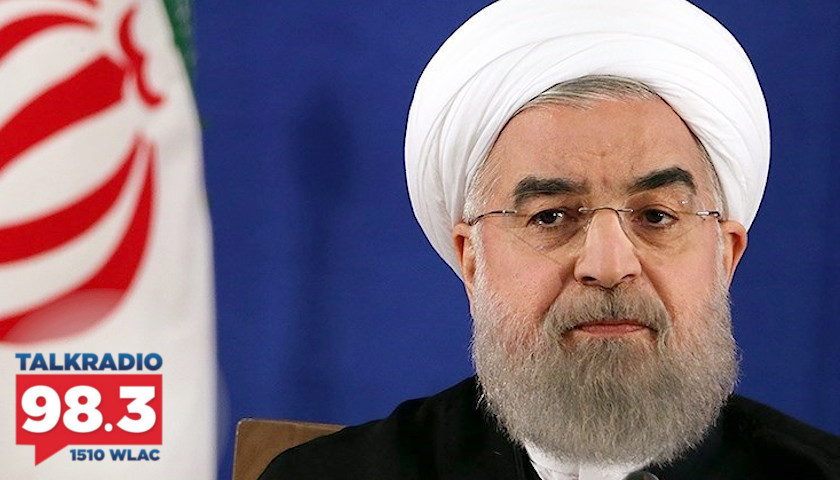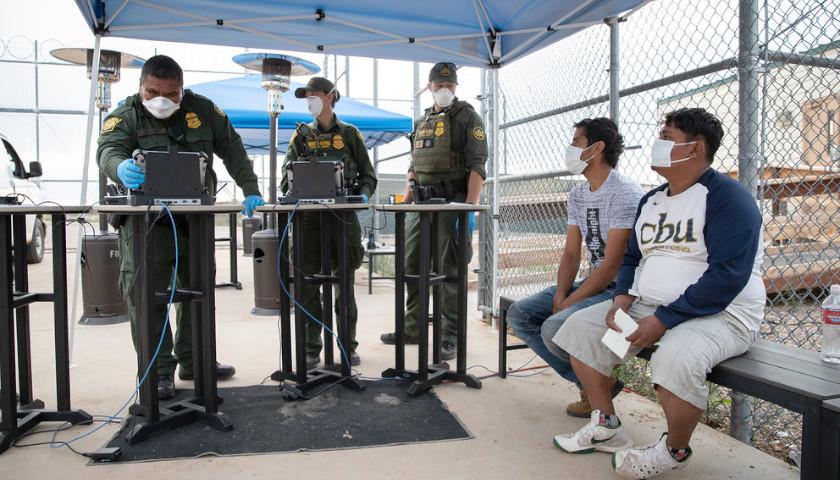Live from Music Row Wednesday morning on The Tennessee Star Report with Michael Patrick Leahy – broadcast on Nashville’s Talk Radio 98.3 and 1510 WLAC weekdays from 5:00 a.m. to 8:00 a.m. – host Leahy welcomed national security expert and Lincoln Fellow of the Claremont Institute David Reaboi to the newsmakers line.
During the second hour, Reaboi discussed his formulaic approach to understanding national security and listening to the enemy and what prompted him to take this career path. He later outlined what he felt were national security threats to the United States with Iran and the uncertainty of America’s military responses.
Leahy: With us on the newsmaker line for the first time here on The Tennessee Star Report is David Reaboi who is a national security expert and has been a Lincoln Fellow with the Claremont Institute and an all-around great thinker. Welcome to The Tennessee Star Report, David.
Reaboi: Thanks so much. I appreciate that.
Leahy: So national security. That’s what you’ve been focusing on particularly in the area of the Middle East. I think we’re in big trouble with the Biden administration following what I would call an appeasement strategy. Am I right? Am I wrong? What am I missing?
Reaboi: I think you’re right. I think the last four years of the Trump administration have seen the best Middle East policy in modern times. And of course that included no new wars. It included getting our enemies on the back foot and strengthening our relationship with our allies and making sure our allies kind of very notably are working closer together than ever before.
The things that Donald Trump was able to do or really what he was able to encourage and facilitate mainly the Abraham Accords and really even more than that just the kind of strategic rebalance between anti-Islamist Arab states like Saudi Arabia and Egypt and the Emirates making common cause with other major allies in the region has just been incredible.
Yes, of course, there’s going to be more appeasement when it comes to Iran, but I think it’s kind of more than appeasement. We’re getting back to this kind of weird asceticism that the Obama administration had. They had this desire to balance out our allies and our enemies to make sure that one was not more powerful than the other. Which of course is kind of counterintuitive.
Leahy: Counterintuitive is your way of saying what I would describe as stupid? (Chuckles)
Reaboi: Right right. Exactly.
Leahy: So David, tell me something, you grew up in northern, New Jersey and you call it very much Sopranoland. According to your website, it was a tight-knit community of very patriotic Hungarian Jewish immigrants. How is it that you became an expert on national security and in particular the Middle East?
Reaboi: I was in lower Manhattan on 9/11 and immediately I thought I had an idea of who it would be because growing up in Jersey and I went through the first World Trade Center bombing in 93. And I thought immediately what is it that is driving these people to attack us? And I wanted to answer that question. I didn’t want to answer it myself. I wanted to let them answer it.
I didn’t want to put words in their mouth and say okay what is that something that is causing you to act. What is that in your language? In your terms? And that’s what I kind of set out to do. And it was just a kind of a fascinating course of study for me for years. And now we’ve gotten to the point where we do anything at all in order to avoid listening to what the enemy says about us.
And I think frankly if you can pardon some extremism here, I think this has served me well when it comes to analyzing the left in the United States. We really need to listen to what they say because the only way to predict what they will do is by understanding how they feel about us and how they see the situation. Anything else is a sort of projection onto the enemy. It’s about intelligence.
Cunningham: David, what is our best information at this point about the current threat of a nuclear Iran? What do we know?
Reaboi: I mean, I can’t answer that. I can’t tell you what U.S. intelligence knows and doesn’t know with any certainty. I do know that we’re pretty late as far as the acquisition of a nuclear weapon goes. But I also know that as far as the Iranians view it, I mean, I think they pretty much have, an open field left in front of them because they know the Biden administration won’t do anything.
Leahy: So you don’t have the details but you’re saying that they are very close to developing a nuclear weapon?
Reaboi: Yeah. I mean it’s kind of opaque and you never know because the Iran deal was set up such that we would inspect some sites that really were not even in use and other sites where they could be making nuclear weapons we had no access to. Iran is a big country. You could be making nuclear weapons in any place. And the Iran deal just isolated a few sites and we said, okay, we’re going to check these and the rest of them we are not going to check.
But so really what that does is that doesn’t give you the best idea of what’s going on there. Obviously, the U.S. intelligence will rule access differently, but I think we have a problem there too. We do know after four years of seeing the intelligence community completely politicize itself under Donald Trump, and it has been going on for longer than that.
Now, I don’t think people trust them, and that’s a terrible position domestically to be in. When you do have enemies outside of your borders but you can’t trust the people who are there to defend the country. I mean, this is a terrible terrible situation. I can’t think of a worse situation for our country to be in.
Leahy: David, do you have a particular point of view in terms of how you analyze international world politics? I’ve read on the Claremont site that you believe there may be some connection between the world of jazz improvisation and the international world of politics. Can you elaborate on that for us?
Reaboi: Sure. I think that means it kind of speaks to my previous career as a jazz musician. But I see a lot of this stuff as very similar. At the end of the day, improvisation is key, and creating something meaningful on the spot that only happens once is the key to jazz and also frankly to politics. And it’s communication.
Leahy: Absolutely. Well David, thanks so much for joining us here today. And where can people go to find out more about your view of the world? Not just about politics but I guess you want to talk about on your website where you say let’s talk about the end of America and various other distractions such as jazz, vinyl, Hi-Fi audio, nutrition, bodybuilding, and more. This sounds very interesting to me. Where do I go to find out more about you?
Reaboi: You can go to my website. That is my name, davereaboi.com.
Leahy: davereaboi.com. Thanks so much for joining us here today. And will you come back?
Reboi: I will!
Leahy: Terrific.
Listen to the full second hour here:
– – –
Tune in weekdays from 5:00 – 8:00 a.m. to the Tennessee Star Report with Michael Patrick Leahy on Talk Radio 98.3 FM WLAC 1510. Listen online at iHeart Radio.
Photo “Hassan Rouhani” by Tasnim News Agency. CC BY 4.0.





